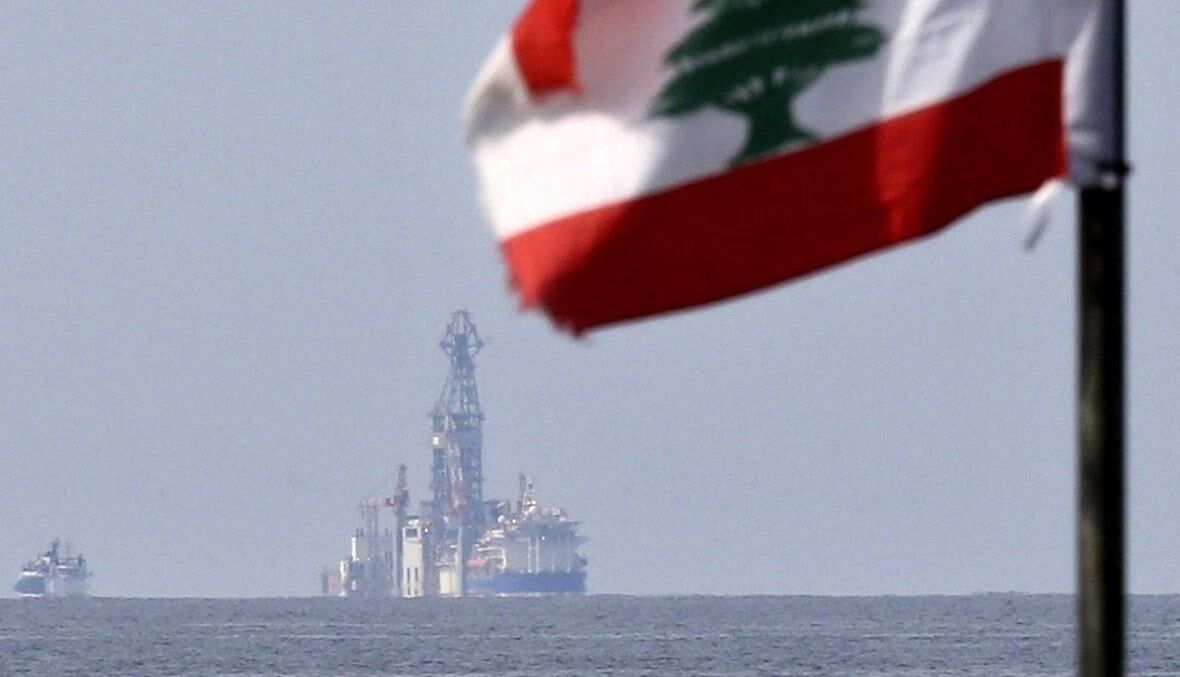Until now, the Zionist regime was seeking absolute ownership and unilateral exploitation of the economic and energy resources in Karish gas field, regardless of Lebanon’s inalienable rights.
The Karish gas field which an expansion of 1430 square kilometers, is located 100 kilometers from the occupied territories and 70 kilometers from the port of Haifa, in the waters of the eastern Mediterranean. Karish is located in block number 8, which is only 7 km away from block 9, which belongs to Lebanon. According to the existing estimates, the volume of natural gas reserves in that field is between 1.5 and 2 trillion cubic feet.
The dispute between Lebanon and the Zionist regime over the Karish gas field goes back to the time of its discovery in 2011; when Lebanon announced the coordinates of its southern maritime borders to the United Nations, which were estimated at 860 square kilometers. Lebanon later announced that there was a mistake in the map that specified the boundaries of the maritime borders, and as a result, it demanded the addition of another 1,430 square kilometers, which also included parts of the Karish gas field, to its maritime borders. But Lebanon’s request was not accepted by the Zionists, therefore, in the past years, this issue had practically become one of the serious disputes between the two sides.
During that period, the United States proposed dividing the disputed area and giving 490 square kilometers to Lebanon and 370 square kilometers to the Zionist regime, which was not accepted by Lebanon.
Recently, the dispute was resolved after the serious role played by Seyyed Hassan Nasrallah. According to the agreement reached, the Zionist regime will retain the right to use the Karish gas field. On the other hand, Lebanon will have the full exploitation and exploration rights of the fields known as “Qana” or “Saida”, parts of which are located in the territorial waters of the occupied Palestine. The agreement was strongly criticized and opposed by some groups within the Zionist regime, because they consider it to mean “handing over parts of the occupied Palestine” to Lebanon.
Amos Yadlin, the former head of the Zionist regime’s intelligence agency, stated in a statement that the assumption close to reality is that Seyed Hassan Nasrallah, the Secretary General of Lebanon’s Hezbollah, has achieved everything he wanted, and that is why he feels satisfied.
Netanyahu also said in a speech that the current Prime Minister Yair Lapid shamefully surrendered to the threats of Seyed Hassan Nasrallah; citizens of Israel beware that Lapid is giving the sovereign land along with a large gas field that belongs to you to Hezbollah… Lapid does not have the authority to do this and hand over sovereign lands to an enemy country.
The details of the agreement published so far, as well as internal reactions in the occupied Palestine, show that Lebanon has reached a “historic” agreement in its long-term conflict with Israel.
Considering that since 2019, Lebanon has been in an unstable political, economic and security situation, and in the maritime border dispute, it has been in a weak position in every respect, and everything was in favor of the Zionist regime, therefore, the “decisive warnings” of Seyyed Hassan Nasrallah , played a very effective role in resolving the said dispute.
Since June, when the Zionist regime was trying to single-handedly extract common gas resources in the Mediterranean Sea, the Secretary General of Hezbollah had warned several times that as long as the interests of Lebanon are not secured, the Zionists will not be allowed to use those resources. In a message sent to Tel Aviv via the US, Nasrallah “threatened” that he will target Zionist ships that enter the disputed waters with the intention of extracting gas.
Therefore, without the “considered and intelligent measures” of Seyyed Hassan Nasrallah, as well as the recent display of strength and military alignment of Hezbollah against the Zionist regime, which was accompanied by the sending of reconnaissance drones over the gas facilities of the Zionist regime in Karish, the possibility for an agreement that is considered a “great” and “determining victory” for Lebanon, was not possible.
In fact, Nasrallah’s warnings in defense of Lebanon’s interests in recent months had caused widespread panic in the occupied territories. This issue caused the Zionist authorities and media, while admitting that Nasrallah will keep his promises, to “backtrack” from their previous positions and give in to Lebanon’s demands, and finally, the Zionists admitted that Hezbollah won.
Lebanon’s recent victory over the Zionist regime in this conflict was achieved thanks to the “resistance” and weapons of the Lebanese Hezbollah. This shows that the insistence of the United States, Europe and some reactionary Arab regimes in the region to “disarm” Hezbollah, which some even in Lebanon are proposing, is a very dangerous issue that while weakening Lebanon in front of the Zionist regime, can face vital threats to the country’s security and national interests, territorial integrity, and the pillars of its existence..
Seyyed Hassan Nasrallah’s show of strength and decisiveness in Lebanon’s successful and historic transition from the crisis and pushing Tel Aviv back from its previous positions will not only “raise the position of the Resistance” and Hezbollah within Lebanon and the region, but also prove the effectiveness of the “approach and discourse of the Resistance” with regard to the Zionist regime.










0 Comments